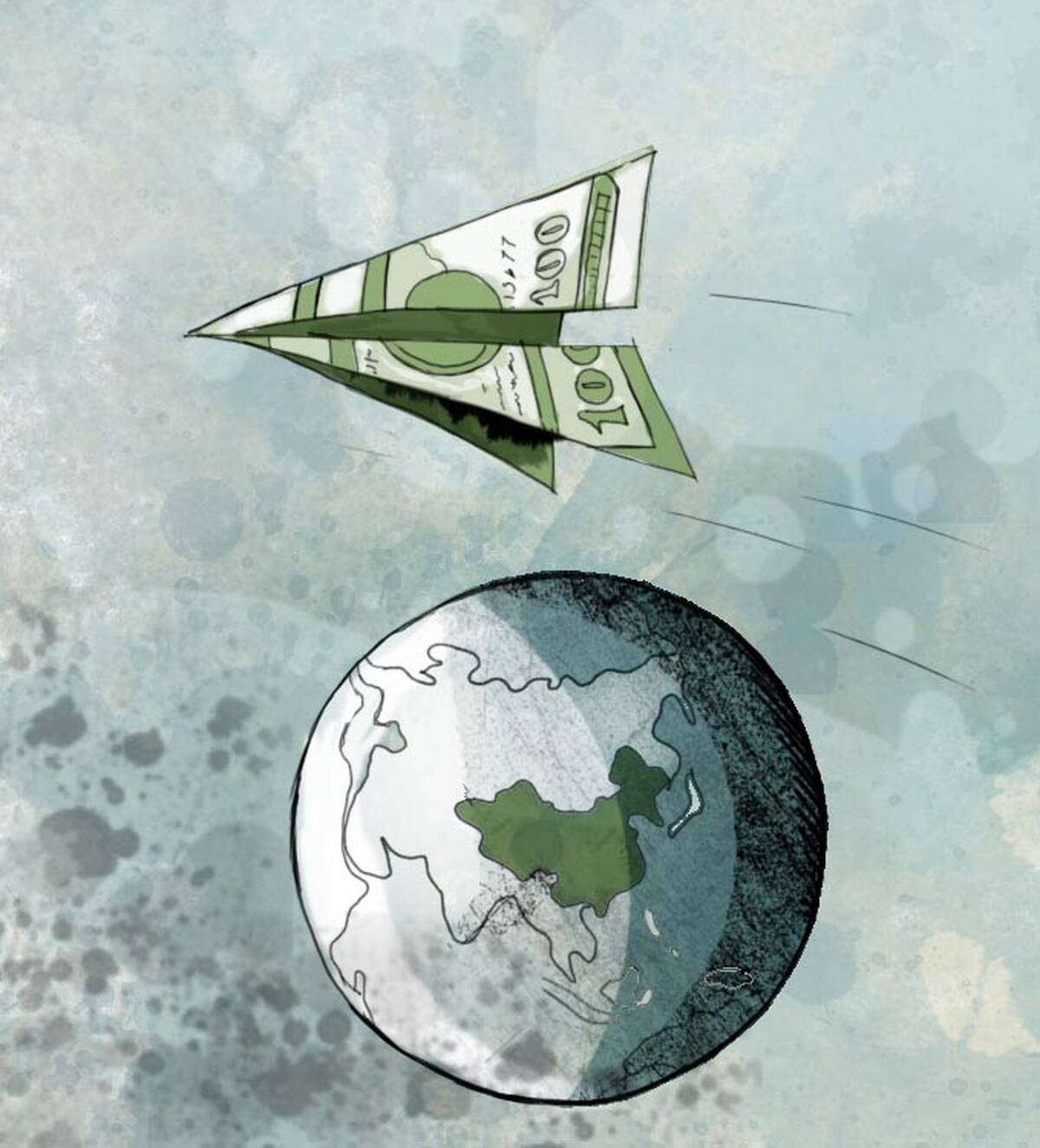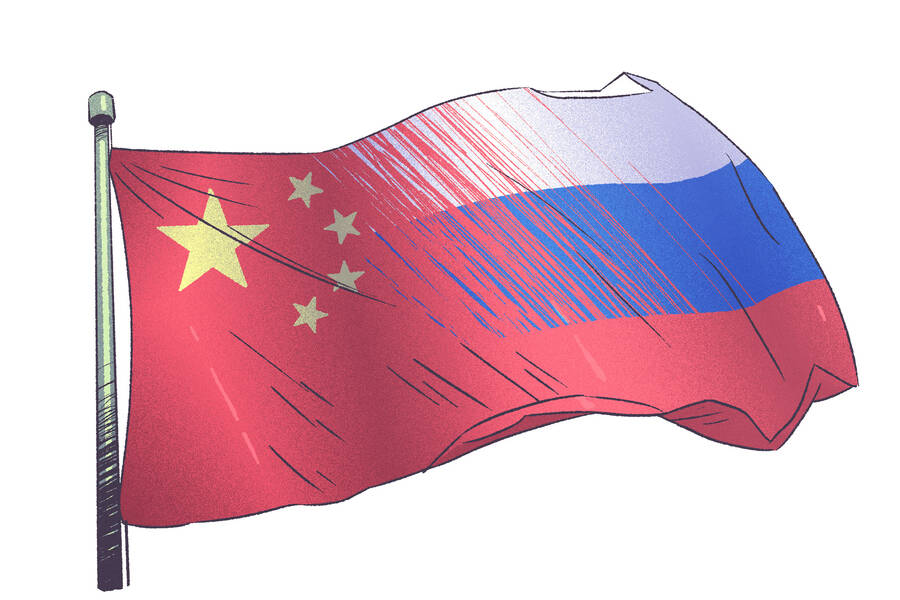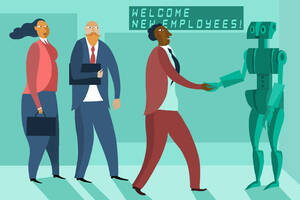There’s a lot to keep track of. In recent weeks, China abandoned its controversial zero-Covid approach to the pandemic, which it had maintained for nearly three years. This will almost certainly have notable short- and long-term implications for the economy. And of course, this policy change is happening against a backdrop in which the country is increasingly perceived by the U.S. as an economic and security threat.
Will American businesses flee China, double-down, or do something in between? Can the two economies truly be “decoupled” without devastating the global economy? And what will be the costs to American soft power if American products leave Chinese shelves?
Nancy Qian is a professor of managerial economics and decision sciences at Kellogg and codirector of the Global Poverty Research Lab. She discusses these questions and more with Ben Jones, a professor of strategy at Kellogg who studies economic growth, and David Dollar, a senior fellow at the Brookings Institution and leading expert on China’s economy.
This conversation has been edited for length and clarity.
Nancy QIAN: What are the biggest challenges for the Chinese economy in 2023, as it is easing out of almost three years of very stringent zero-Covid policies? And of course, this is happening in an environment where the political rhetoric from its biggest trading partner, the United States, is getting evermore adversarial.
David DOLLAR: I think China faces both short-term and long-term challenges. I and many other China experts are quite surprised at the dramatic way in which China seems to be deconstructing its zero-tolerance policies. I think Xi Jinping and other leaders are apparently being responsive to a lot of public unhappiness that’s been demonstrated in various ways. That’s definitely the main challenge.
It has to have some positive effect on the rest of the economy, because the zero tolerance had a pretty negative effect. So easing up there has to lead to some increase in people’s consumption, going out to restaurants, traveling. But again, we don’t know how people are going to react. If the disease spreads very quickly, then you may not get too much change in people’s behavior, because they’re going to essentially self-restrict, instead of having the government restrict them.
Ben JONES: So, just to dig into that a little further. The U.S. has had now a very loose policy from a government perspective around Covid for quite a long time. And yet we still see constraints on labor supply, where at least some people seem like they don’t want to go back to work. It may be one of the forces that is driving up inflation, say, for service workers. So when you look at China, where we’re already talking in general about structural challenges and labor supply with an aging economy, do you think that there’s going to be a labor-supply issue going forward like in the U.S.?
DOLLAR: Yeah, I think that makes a lot of sense, Ben. Certainly, looking at my own behavior and some of my close friends’, we have no government restriction on our behavior, but we self-restrict. I would think you would get a similar reaction from many middle-class urban Chinese: that if they can avoid working or going to work, they’re going to.
QIAN: When I think about my family or my friends in China who are my age and have children, most of them still rely on their elderly parents for childcare. So, as we’re exiting, and if Covid rates are going to go up and the elderly are unvaccinated and they start self-restricting, that’s just going to be really complicated if they have to provide childcare.
DOLLAR: Absolutely. You may very well get an oscillation in official policy. So if there’s a big resurgence of the disease and rising deaths and crisis in hospitals, restrictions will probably come back. Not all the way to zero tolerance, but to a much more restrictive policy in some way.
And that just creates tremendous uncertainty about economic activity and investment. Do you want to be expanding your business when there’s this kind of uncertainty about whether people are going to be going out and consuming?
JONES: It does seem that the Chinese government has also been deploying a narrative to justify zero-Covid over the years: that the disease is really scary and really deadly. Do we have a sense that the Chinese people believe Covid is even riskier than people do in other countries? And will that lead to more tentativeness and self-restriction in terms of getting back to work and driving demand in the economy?
DOLLAR: Well, the fact that people got really unhappy with this zero tolerance, and were willing to go out and demonstrate in an environment where that can be quite personally risky, says that people were not completely buying the government story.
QIAN: And China is big. There are many different people with many different views and preferences and risk perceptions. And it has to go through what all the other countries went through, right? Which is this very conflictual process of where people who are very different find their own equilibrium.
There is this sense of extraordinary fear that I think Americans felt in the beginning and sort of moved on from, and which the Chinese still feel now, but they will move on from. And at the same time, there’s also this diversity of opinions. I think the young people, like young people everywhere, are more ready to get on with things.
One of the things we’ll have to see is, once we lift the restrictions, if all of these differences of opinions will be expressed in a way that they haven’t been allowed to be expressed under a strict zero-Covid policy. That’s going to cause internal social frictions that just have to be worked out.
JONES: I want to turn now to decoupling, by which I mean moving away from trade and economic interaction with other countries. If you’re the Chinese government, you’re facing a form of retaliation from the U.S. And as you’re trying to get back on your feet and get back to work coming out of the Covid times, you might be looking for demand from global consumers for your products to help support the economy. You might be looking for more foreign direct investment into China, but also maybe technological know-how. How important do you see decoupling for understanding what’s going to happen in the Chinese economy in the year or two ahead?
DOLLAR: Well, I think it’s extremely important. The idea is that the U.S. doesn’t want to be so dependent on China for national-security reasons, but then you have to add on top of that the U.S. economy slowing down, the European economy slowing down. Maybe one or both will go into recession. So you’ve got the long-term structural issues of decoupling, and then you’ve got short-term cyclical issues.
QIAN: When we think about decoupling, I guess my very basic question is just like, what does that even mean in this context? Like, there’s one extreme, which is the Cold War: there was a wall politically, economically; there was no trade. I think everyone agrees that that would be disastrous, right? And in the other extreme, you have free trade. And this is probably not realistic at this point in time. There’s been a lot of discussion about how the semiconductor industry is strategically very important to the U.S., and the U.S. needs to make sure that that’s not completely under the control of China. So, I guess my question is, is it possible to have a quasi-decoupling, where certain strategic interests are addressed without wrecking the entire economies of these two countries and the rest of the world?
DOLLAR: If you look at actual trade between China and the United States since the U.S. imposed tariffs under President Trump, and then followed up with other measures, there’s definitely been some downward trend, but it’s been surprisingly modest. Actually, this year we’re going to hit a new high in U.S. imports from China.
Now, as you dig a little deeper, you will find there are specific products where that story is not true. So, the U.S. is importing about 50 percent less in semiconductors and telecommunication equipment from China. But it’s really more of a tech war than a trade war. So, for the moment, Nancy, I think we have that kind of world that you’re talking about, but I don’t think we should be sanguine about this. It certainly seems we could slide into a more general decoupling.
In Washington, you’ve basically got two views. You’ve got a national-security view that, within the spectrum of all the thousands of different products that we trade, there are a few that are of national-security import, and we should be restricting these. But the other view is that anything that’s contributing to China’s growth and development is a threat ultimately to the United States. And some people in this camp, if you bring up the issue that this is going to hurt the U.S. economy or hurt innovation, you’ll get back that as long as it hurts the Chinese more, then this is a good national-security policy. I personally think this is really quite dangerous.
QIAN: I have two concerns. One is just implementation: How does one actually implement decoupling? I can see how you can do that for narrowly defined products with short supply chains. But if it’s a complex product, you know, it’s almost impossible without going all the way and building a wall. Most companies don’t know the suppliers or their suppliers. To ask them to know the suppliers of the suppliers of the suppliers all the way down to the raw material to make sure that some aspect isn’t coming from China, that’s just administratively very cumbersome, if not completely impossible, given the complexity of the products that we’re making these days.
And the second concern is about spillover effects. I have had conversations with people, entrepreneurs in the U.S. and China, who are very concerned about decoupling and making business decisions based on that fear. I was speaking to a vice president of one of the U.S.’s largest food-manufacturing companies. They produce candy and food and food coloring, nothing strategic at all. But she was telling me that the discussion they’re having with the corporate leadership is that they’re probably not going to be in China for the next 30 years. And the reason is because they just can’t deal with the policy fluctuations.
JONES: We talked before about government restrictions versus self-restrictions as a personal choice to avoid getting Covid. And I think that we have the U.S. and China governments imposing certain kinds of policy restrictions through tariffs or other means on each other. But then we have a bunch of companies, multinationals, that are trading across borders and may not be restricted but have to make choices themselves.
I just want to dig in here if we can, on multinationals. How do I decide whether to continue to expand in China? Do I just hold steady and wait or pull back?
DOLLAR: I think multinationals in general remain pretty committed to China. Quite a few of them are in China to sell into the domestic market. So if there’s going to be a decoupling, they’re not going to leave; they’re going to just double-down and source more from China if they’re worried that international trade is being threatened.
Aside from the tension with the U.S., obviously Covid and the zero-tolerance policy have had considerable effects. So, I definitely think it’s got many companies worried about how lean their value chains had become in a sense that they hadn’t really built in any redundancy. So, I do think there is some rethinking about having a little redundancy. A phrase I’ve heard is, “China plus one,” meaning you’re mostly producing in China, and a lot of that’s for the Chinese market, but it’s good to have at least one other country where you’re operating.
But China produces 25 percent of world manufacturing value added. Everybody else is small compared to that; only India potentially could compete on size. So, there’s a limit to how much you can shift production to these other locations.
QIAN: China is moving up the value chain over time. And I think as it moves up the value chain, it actually makes it harder to substitute away from China. A lot of what China’s producing now is pretty high-tech.
And my other thought is that it seems like a bad idea for the U.S. to move away from customer-facing brands having a presence in China. A brand presence in China has lots of benefits, right? Obviously for the businesses, which make money, but even from the U.S.’s strategic self-interest. We know now, from economic research and from political scientists, the importance of soft power, right?
DOLLAR: A lot of our conversation has been about China, but more generally, the U.S. has introduced quite a bit of protection aimed at lots of different trading partners. And I think that really cuts into our soft power around the world. Access to the U.S. market is very important for a lot of countries around the world. And in my experience, it’s been a source of goodwill: that this is a public good the U.S. provides to the world having this big open market. So, I do think the tariffs that we’ve introduced, the various trade impediments, and this tendency toward “Buy American” in our recent legislation, are undercutting our influence around the world.




